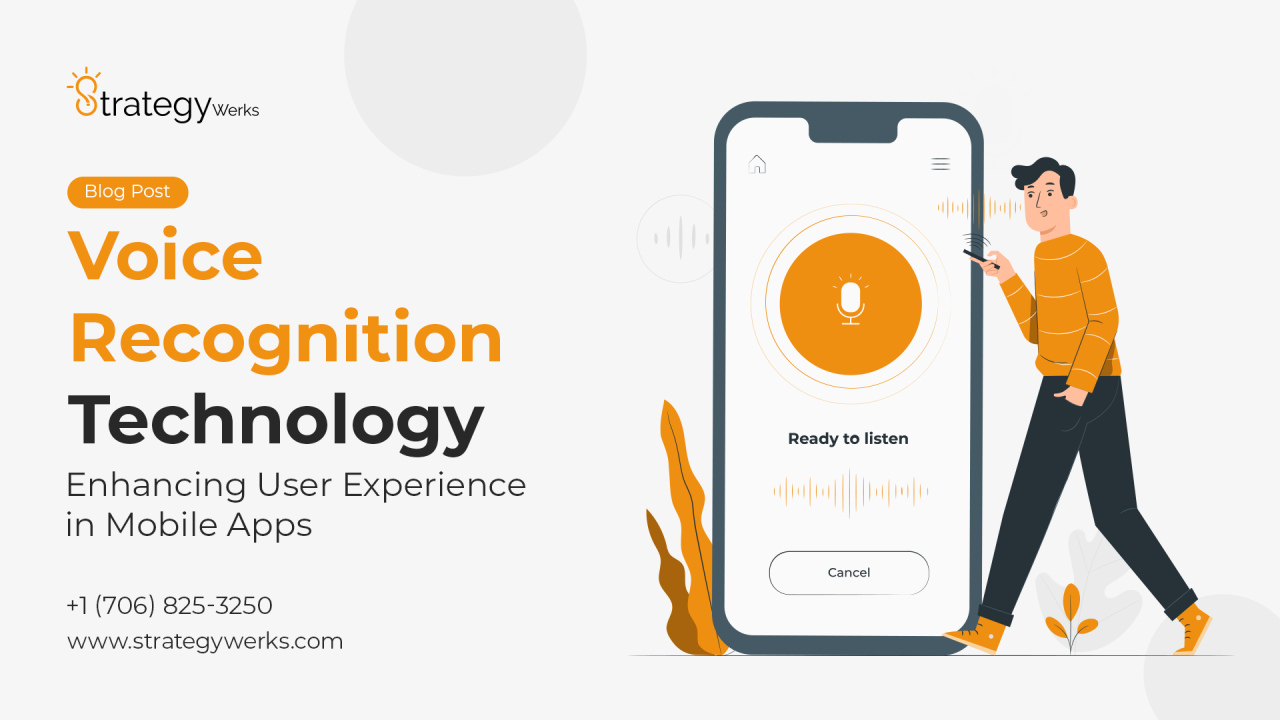
Voice recognition technology has swiftly moved from the realm of science fiction into our everyday lives, becoming a crucial component of modern mobile applications. This transformative technology is enhancing user experience by making interactions with devices more intuitive, efficient, and accessible. In this article, we delve into how voice recognition technology is reshaping the mobile app landscape, the benefits it brings, and the future prospects of this rapidly evolving field.
The Rise of Voice Recognition Technology
Voice recognition technology has been around for several decades, but recent advancements in artificial intelligence (AI) and machine learning have propelled it to new heights. The ability of AI to understand and process natural language has significantly improved, making voice recognition more accurate and reliable.
The popularity of voice-activated virtual assistants like Siri, Google Assistant, and Alexa has fueled the adoption of voice recognition technology in mobile apps. Users are becoming increasingly comfortable with speaking to their devices, expecting seamless and efficient responses. This shift in user behavior is driving developers to integrate voice recognition features into a wide array of mobile applications.
Enhancing User Experience
Improved Accessibility:- One of the most significant advantages of voice recognition technology is its ability to improve accessibility. For users with disabilities, such as visual impairments or mobility issues, voice commands offer a way to interact with mobile apps without relying on touchscreens or physical buttons. This inclusivity ensures that a broader audience can access and benefit from mobile applications.
Hands-Free Convenience:- Voice recognition allows for hands-free operation, which is particularly valuable in scenarios where users cannot easily use their hands. For example, drivers can navigate maps, send messages, or make calls without taking their hands off the wheel. Similarly, professionals can multitask more effectively, dictating notes or setting reminders while performing other tasks.
Faster and More Efficient Interactions:- Typing on small mobile screens can be cumbersome and time-consuming. Voice commands offer a faster and more efficient alternative. Users can perform complex actions, such as searching for information, setting alarms, or controlling smart home devices, with simple voice instructions. This speed and efficiency enhance the overall user experience, making mobile apps more user-friendly.
Personalized Experiences:- Advanced voice recognition systems can learn from users’ speech patterns and preferences, offering personalized experiences. For instance, voice assistants can remember user preferences, such as favorite music genres or preferred navigation routes, and tailor their responses accordingly. This level of personalization creates a more engaging and satisfying user experience.
Applications of Voice Recognition in Mobile Apps
Virtual Assistants:- Virtual assistants are among the most well-known applications of voice recognition technology. They help users with a wide range of tasks, from setting reminders and sending messages to providing weather updates and managing smart home devices. By integrating virtual assistants into mobile apps, developers can offer users a seamless and convenient way to interact with their devices.
Navigation and Mapping:- Voice recognition is particularly useful in navigation and mapping apps. Users can input destinations, search for points of interest, and receive turn-by-turn directions without needing to type or touch their screens. This hands-free operation enhances safety and convenience, especially for drivers.
Healthcare and Fitness:- In healthcare and fitness apps, voice recognition can assist users in tracking their activities, setting goals, and logging health data. For instance, users can dictate their workout routines, track their food intake, or request health tips using voice commands. This integration simplifies the user experience, encouraging more consistent use of these applications.
E-commerce:- E-commerce apps are leveraging voice recognition to streamline the shopping experience. Users can search for products, place orders, and track deliveries using voice commands. This functionality not only speeds up the shopping process but also makes it more accessible for users who may have difficulty navigating traditional interfaces.
Customer Service:- Voice recognition technology is transforming customer service within mobile apps. Chatbots and virtual assistants can handle customer inquiries, provide support, and even process transactions through voice interactions. This reduces the need for human intervention, leading to faster response times and improved customer satisfaction.
Challenges and Considerations
While voice recognition technology offers numerous benefits, it also presents certain challenges and considerations:
Accuracy and Understanding:- Achieving high accuracy in voice recognition is crucial for a positive user experience. Background noise, accents, and variations in speech can affect the system’s ability to understand commands correctly. Continuous advancements in AI and machine learning are addressing these challenges, but developers must ensure that their voice recognition systems are robust and reliable.
Privacy and Security:- Voice recognition involves the collection and processing of voice data, raising concerns about privacy and security. Developers must implement strong encryption and data protection measures to safeguard user information. Transparency about data usage and obtaining user consent are also essential to building trust.
User Education:- Educating users about the capabilities and limitations of voice recognition technology is important. Clear instructions and prompts can help users understand how to interact with the system effectively. Additionally, providing alternative input methods ensures that users have options if voice recognition is not suitable for their needs.
The Future of Voice Recognition Technology
The future of voice recognition technology in mobile apps is promising, with several exciting trends on the horizon:
Improved Natural Language Processing (NLP):- Advances in NLP will enable voice recognition systems to understand and interpret more complex commands and conversations. This will lead to more natural and intuitive interactions, further enhancing user experience.
Integration with Augmented Reality (AR) and Virtual Reality (VR):- Voice recognition is expected to play a significant role in AR and VR applications. Users will be able to navigate virtual environments, control AR experiences, and interact with digital objects using voice commands, creating more immersive and interactive experiences.
Contextual Awareness:- Future voice recognition systems will be more contextually aware, understanding the context of a conversation and providing more relevant responses. This will involve not only recognizing words but also interpreting intent and sentiment, leading to more intelligent and responsive interactions.
Multilingual Capabilities:- As global usage of mobile apps continues to grow, multilingual voice recognition capabilities will become increasingly important. Systems that can accurately understand and respond in multiple languages will provide a more inclusive and accessible user experience.
Conclusion
Voice recognition technology is revolutionizing the way users interact with mobile apps, offering improved accessibility, hands-free convenience, faster interactions, and personalized experiences. While challenges such as accuracy, privacy, and user education remain, continuous advancements in AI and machine learning are addressing these issues, paving the way for more sophisticated and reliable voice recognition systems.
As we look to the future, the integration of voice recognition with emerging technologies like AR, VR, and contextual awareness promises to further enhance user experience. By embracing these innovations, developers can create mobile apps that are not only more functional and efficient but also more engaging and accessible to a diverse range of users.
Incorporating voice recognition technology into mobile apps is no longer just a trend; it is becoming a necessity for staying competitive in the ever-evolving digital landscape. As this technology continues to evolve, it will undoubtedly unlock new possibilities and transform the way we interact with our devices, making our digital experiences more intuitive, seamless, and enjoyable.

